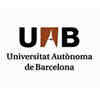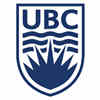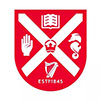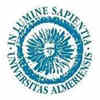美国蒙大拿州立大学环境微生物学博士后职位
美国蒙大拿州立大学环境微生物学博士后职位
Job Description
Position Details
Announcement NumberSTAFF - VA - 21012
For questions regarding this position, please contact:Roland Hatzenpichler roland.hatzenpichler@montana.edu 406-994-5469
Classification TitlePostdoctoral Researcher
Working TitlePostdoctoral Research Associate
Brief Position OverviewThe Hatzenpichler Environmental Microbiology Lab is looking for a postdoctoral researcher to join a collaborative project on the diversity, genomics, physiology, and ultrastructure of Asgard archaea and its implications for eukaryogenesis. We seek to obtain a comprehensive genetic catalog of Asgard archaea diversity, determine their physiology, and characterize their cellular ultrastructure. To achieve this, we will employ an array of “omics”, physiology, and microscopic approaches. Determining the identity of archaea most closely related to eukaryotes, their physiological interactions, and cellular structure will transform our understanding of eukaryogenesis. To learn more about the Hatzenpichler lab visit www. environmental- microbiology.com
Position Number4C0434
DepartmentChemistry
DivisionCollege of Letters & Science
Appointment TypeResearch Professional
Contract TermFiscal Year
Semester
If other, specify From date
If other, specify End date
FLSAExempt
Union AffiliationExempt from Collective Bargaining
FTE1.0
Benefits EligibleEligible
SalarySalary commensurate with experience, education, and qualifications.
Contract TypeLOA
If other, please specify
Recruitment TypeOpen
General StatementThe Hatzenpichler Environmental Microbiology Lab is looking for a postdoctoral researcher to join a collaborative project on the diversity, genomics, physiology, and ultrastructure of Asgard archaea and its implications for eukaryogenesis. This research project is part of an international collaboration between the Hatzenpichler lab and the groups of Brett Baker, Mark Ellisman, and Thijs Ettema. Together, we seek to obtain a comprehensive genetic catalog of Asgard archaea diversity, determine their physiology, and characterize their cellular ultrastructure. To achieve this, we will employ an array of “omics”, physiology, and microscopic approaches. Determining the identity of archaea most closely related to eukaryotes, their physiological interactions, and cellular structure will transform our understanding of eukaryogenesis. The position will be available starting September 1st 2020 and will remain open until filled. We are willing to wait for an exceptionally qualified candidate to finish their Ph.D. to start the position. The position is funded for 36 months by the Simons Foundation’s Origin of the Eukaryotic Cell Initiative and includes full benefits. . Applicants are asked to submit a CV including a list of publications, a 1-2 page statement on research interests, experience and goals, and the names and contact information of at least three references. Reference letters do not have to be included during initial application but will be requested as needed.
Duties and ResponsibilitiesThe postdoc will use a combination of cutting-edge next-generation physiology approaches targeted at Asgard archaea physiology and cell-cell (metabolic and physical) interactions. Approaches to be employed include stable isotope probing, substrate analog probing, fluorescence activated cell sorting, Raman micro-spectroscopy, different in situ visualization techniques, as well as genome analyses and targeted cultivation. The postdoc’s main objective will be to experimentally test genomic predictions on Asgard archaea physiology and cellular interactions, and (ideal case scenario) obtain an enrichment culture of an Asgard archaeon
Required Qualifications – Experience, Education, Knowledge & Skills1. Ph.D. and a publication record in environmental microbiology, microbial physiology, molecular ecology, or a related field at the time of appointment.
Preferred Qualifications – Experience, Education, Knowledge & Skills1. Experience in oligo/poly-nucleotide probe design and application of FISH, CARD-FISH, gene-FISH and/or HCR-FISH to environmental samples. 2. Experience in modern experimental microbial ecology techniques, e.g., stable isotope probing, high-throughput cultivation, or functional genomics. 3. In-depth knowledge of archaeal physiology and cell biology. 4. Excellent written and oral communication skills and excellent command of English
The Successful Candidate WillHave excellent oral and written communication skills. Have the ability to work effectively with diverse populations. Have the ability to work independently on a wide variety of tasks and in different roles. Participate in experimental field work. Commit to the mentoring of graduate and undergraduate students. Work productively in a team-oriented environment and have a proven track record of team work. Maintain effective attention to detail, meet deadlines, prioritize competing demands, and should be skilled at prioritizing, organizing, and working on multiple projects.
Position Special Requirements/Additional InformationThis job description should not be construed as an exhaustive statement of duties, responsibilities or requirements, but a general description of the job. Nothing contained herein restricts Montana State University’s rights to assign or reassign duties and responsibilities to this job at any time.
Physical DemandsTo perform this job successfully, an individual must be able to perform each essential duty satisfactorily with or without reasonable accommodations. The requirements listed above are representative of the knowledge, skill, and/or ability required.

















